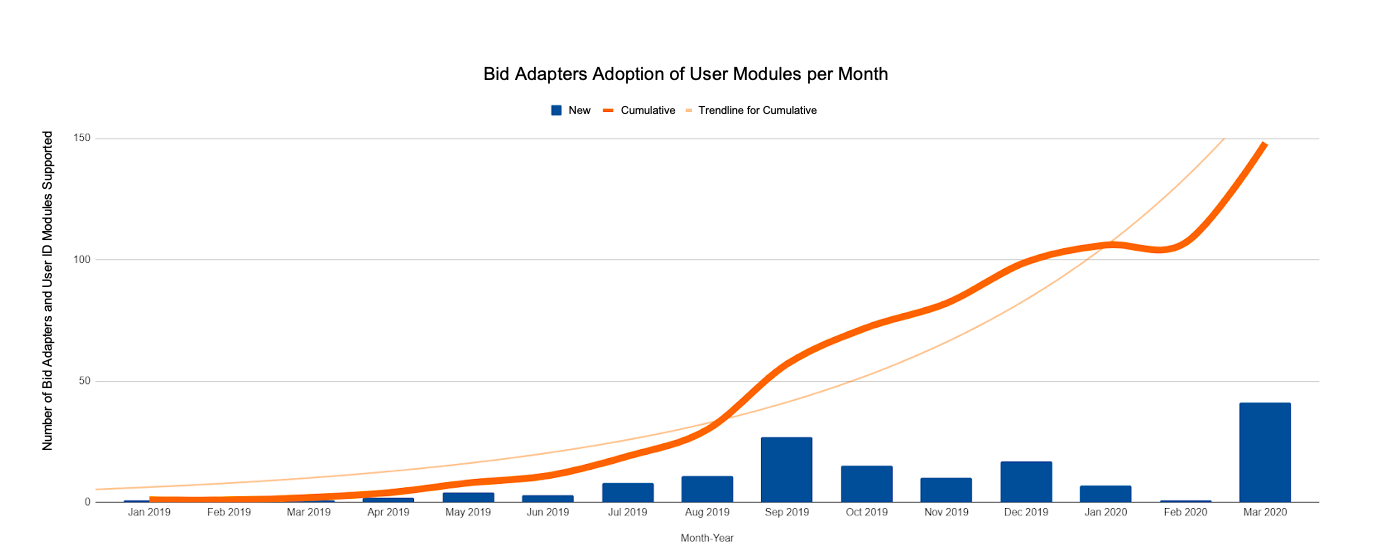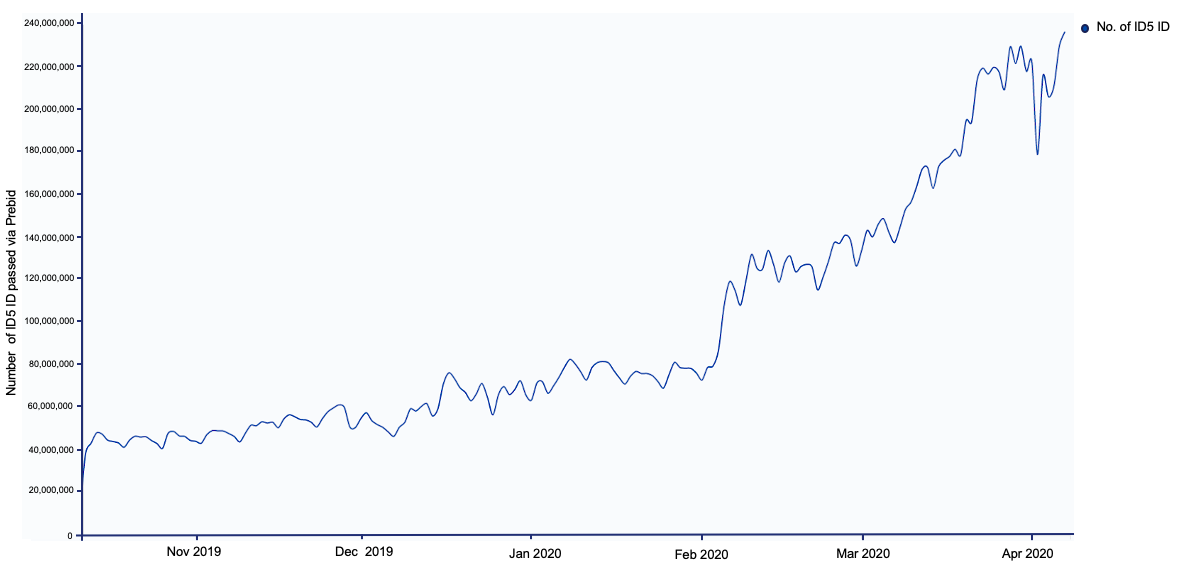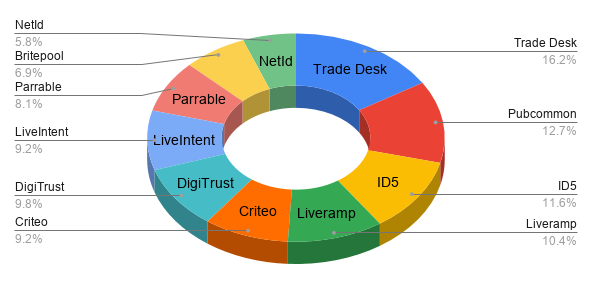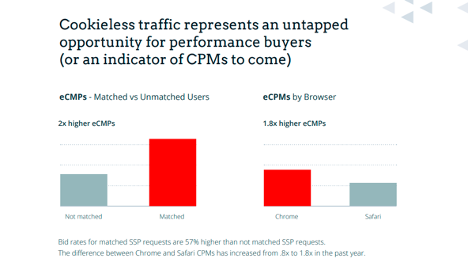
Adoption of shared ID solution accelerates as publishers and ad tech platforms prepare for a cookie-less future
- Posted by Valbona Gjini
- On May 15, 2020
Despite the COVID-19 situation, industry efforts to solve the identity crisis are not slowing down. On the contrary, identity providers are seeing a strong increase in demand for cookie-less identification solutions, as publishers and brands use the current down times to plan their post-coronavirus strategy.
This trend is visible in Prebid, where the rate of integration with shared ID solutions by SSPs (bid adapters) is accelerating. From a handful at the beginning of 2019, the number of ID modules supported by SSPs has grown to 59 by end of Q3 2019, 99 in Q4, and 148 in Q1 2020. The month of March 2020 has actually seen the largest amount of activation, with 41 modules being added by 6 bid adapters including Media.net, OpenX, Pubmatic and Yieldlab.

Illustrating this growth in demand for future-proof ID solutions, ID5 has seen the reach of its Universal ID service grow 243% in the 1st Quarter of 2020. The acceleration has been most notable in March: calls to the Universal ID API increased 63% from February, fuelled by higher traffic as well as numerous publisher activations.

The ID5 module, which was launched in July 2019, has already been adopted by 18 adapters, which makes it the 2nd most supported commercial solution, in Prebid, after The Trade Desk.

This acceleration, as well as the launch of Project Rearc by IAB Tech Lab, illustrate that the market is not settling for Chrome’s “Privacy Sandbox” approach. The industry is looking for solutions that allow user-level identification and enable audience profiling, targeting and more granular measurement and attribution capabilities without compromising on privacy.
Enabling publishers to identify readers allows them to increase their revenue as identified users are worth more. The recent “Programmatic Insight” report published by Bidswitch reveals that “identifiable users” are twice as valuable for publishers as unidentifiable users.
According to data gathered by the ad tech platform, bid requests for matched users (ie. users for which buyers have an ID) sell for 2x higher eCPMs than bid requests for unmatched users. In a similar analysis, eCPMs for Chrome users, where 3rd Party cookies allow buyers to identify their audiences, are 1.8x higher than eCPMs for Safari users, where identifiers are not available.

The recent COVID-19 crisis has widened the gap further. A recent analysis by Cafe Media also shows that in the two weeks most heavily affected by advertisers cutback, Safari CPM dropped by 10% more than Chrome.
According to our CEO, Mathieu Roche, “During the crisis, the work to reinvent identification for digital advertising continues and accelerates. Chrome has refused to move the goalposts and remains committed to phasing out third Party cookies by the end of 2021, which means that the industry has to migrate to a new identification method by then. In these difficult times, we see more than ever how important a free a diverse publishing ecosystem is to society. Digital advertising is built on the ability to identify users individually so that brands can control and optimise their investments. The death of third-party cookies gives us the opportunity to build a more respectful, more protective, and more efficient infrastructure to identify users in a privacy-compliant manner. This is what ID5 has been focused on for the past two and a half years, and we are happy to see that the market is following us and embracing shared ID solutions en masse.”
